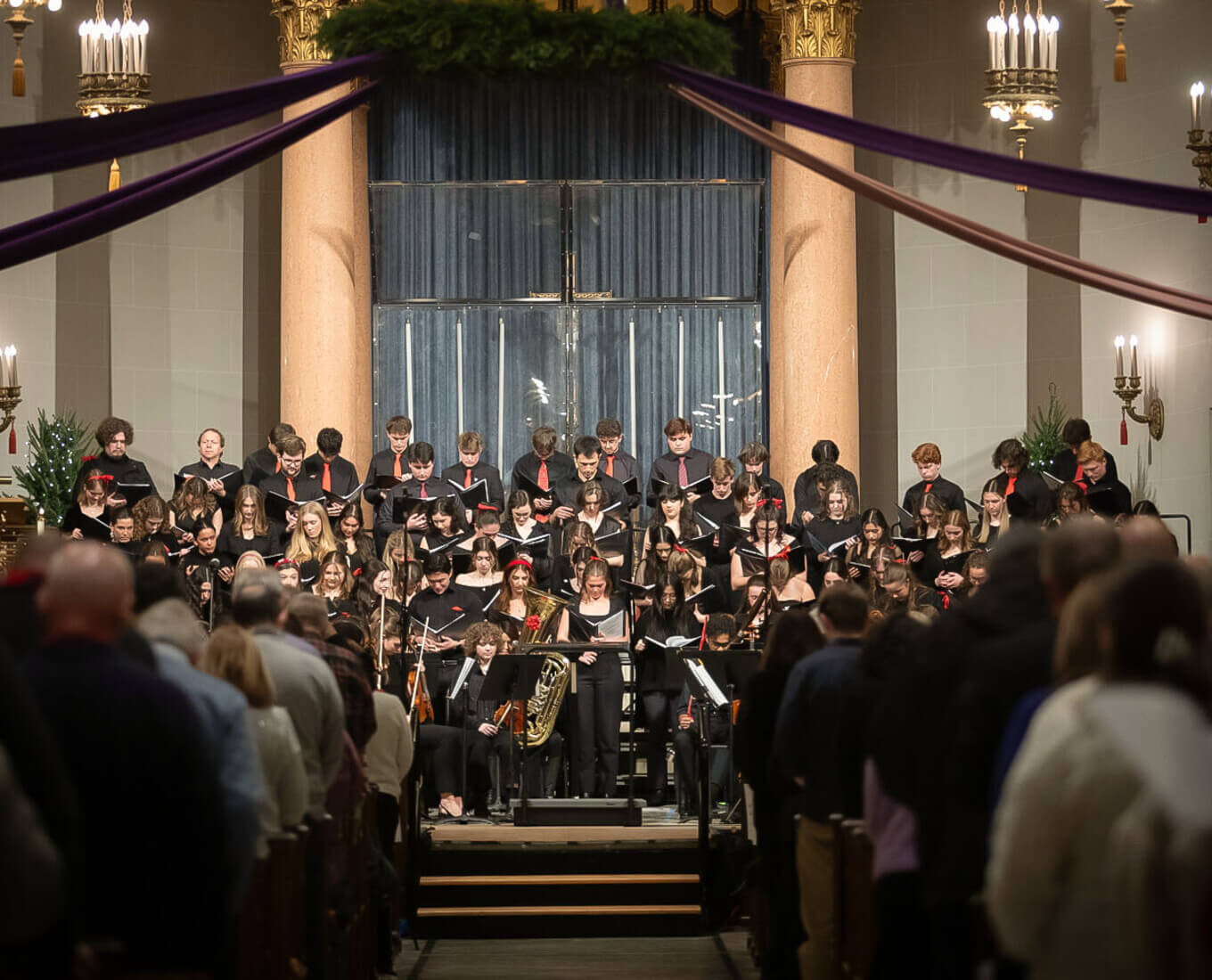WORCESTER, Mass. – The College of the Holy Cross is proud to announce a new visiting fellow in Balinese performing arts, I Made Bandem, a world renowned master and leader of music, dance, and theater. He will conduct his first Gamelan Gita Sari (a Holy Cross student group that performs the music and dance of Bali) concert on Fri., Nov. 30 at 8 p.m. in Brooks Hall. Arrive early: these concerts, which are free and open to the public, are generally standing room only.
“It is a tremendous thrill and honor to have an artist of Bandem’s stature teaching us Balinese dance and gamelan music,” says Lynn Kremer, professor of theatre at the College of the Holy Cross and a key player in bringing Bandem to the College. “He is one of Bali's most distinguished artists and scholars with performance and lecture credits from around the world.”
Born and raised in the village of Singapadu, Gianyar (a region in Bali, Indonesia) by famed master dancer I Made Kredek, he came to the U.S. in 1968 to study music and theatre at the University of Hawaii. He received his B.A in dance and his M.A. in dance ethnology from U.C.L.A., and in 1980 became the first Indonesian to earn his Ph.D. in ethnomusicology from Wesleyan University.
After earning his Ph.D., he returned to Indonesia where he was appointed Chancellor of the Indonesia Dance Academy (ASTI) Denpasar in 1982. Since then, Bandem has advanced the school’s status and turned it into the Indonesian Institute of Arts.
“The effort to increase the status of the institution to a higher level is not only a matter of political administration, but more a struggle to advocate arts as science, to equally position art in contrast to other fields of study,” says Bandem’s son, Marlowe. “This struggle becomes imperative as the majority of Indonesian’s still view art as a profession (vocation), not a substantial field of study.”
Bandem has made major contributions to Balinese art and culture including the creation of an Indonesian music association, Masyarakat Musicology Indonesia (MMI) in 1985. Now known as Masyarakat Seni Pertunjukan Indonesia (MSPI), it has advanced as a center for research, creation, and development of Indonesian arts. This organization has made it possible for students to study ethnomusicology in Indonesian art universities.
In 1986, Bandem put together The First International Gamelan Festival, with more than 250 groups performing and representing gamelan (traditional Indonesian music orchestra) and ethnic music from all over the world. The festival proved just how important gamelan is to the music world.
With the help of Dr. Ida Bagus Mantra, professor and former governor of Bali, Bandem is also responsible for the Bali Arts Festival. The annual festival is going into its 27th year and is a foundation for development in Balinese arts and culture.
Another one of his accomplishments is the Museum Gamelan (The Museum for Musical Instruments of Indonesia), which houses the largest collection of Indonesian musical ensembles.
Bandem has taught at the University of Hawaii, University of California Los Angeles, Wesleyan University, University of Baltimore County and Brown University.
He has published numerous books and scientific articles about arts and culture all over the world. One of his books, Kaja and Kelod: Balinese Dance in Transition (Oxford University Press 1981; reprinted 1995), is considered a classic by artists of music, dance and theatre. He has also written many text books for students of Indonesian arts including, Prakempa: A Sacred Book of Balinese Music (Denpasar: Percetakan Bali, 1986), Wayang Wong in Contemporary Bali (Bali Mangsi, Jogjakarta, 2001), and Encyclopedia of Balinese Dance (Denpasar: ASTI, 1982).
Bandem is the recipient of numerous awards including the Fumio Koizumi Prize, for his dedication and life long achievement in the field of ethnomusicology; the International UNESCO Music Council Award, where he was recognized for his attention and dedication to the world of arts and culture as well as the teaching of his concepts; The Habibie Award for Science from the Habibie Center in Indonesia, for his belief of cordial cross-border interconnectedness by using arts and culture; and the Satyalancana Karya Satya XXX, for 30 years of devotion to public service.
“When colleagues from other institutions interested in Balinese performance traditions learned that he would be at Holy Cross they were just amazed,’ says Kremer.
Bandem states his foremost decision to teach at Holy Cross relates to the reality that “Holy Cross is a liberal arts college founded on excellence and realization of the four essential elements of being: religious conception, intellectual capacity (science and technology), aesthetics (literature and art), and aptitude for physical competence. The fusion of these elements represents sheer education for the wholeness of humankind.”
Bandem has signed a two year agreement with the College.
Bandem continues a tradition of highly distinguished visitors from Bali who enrich the Holy Cross curriculum and stage these eagerly anticipated semi-annual presentations of music, dance and mask work, bringing together students with professional performers.
Holy Cross Welcomes New Balinese Professor at Concert
Read Time
4 Minutes


